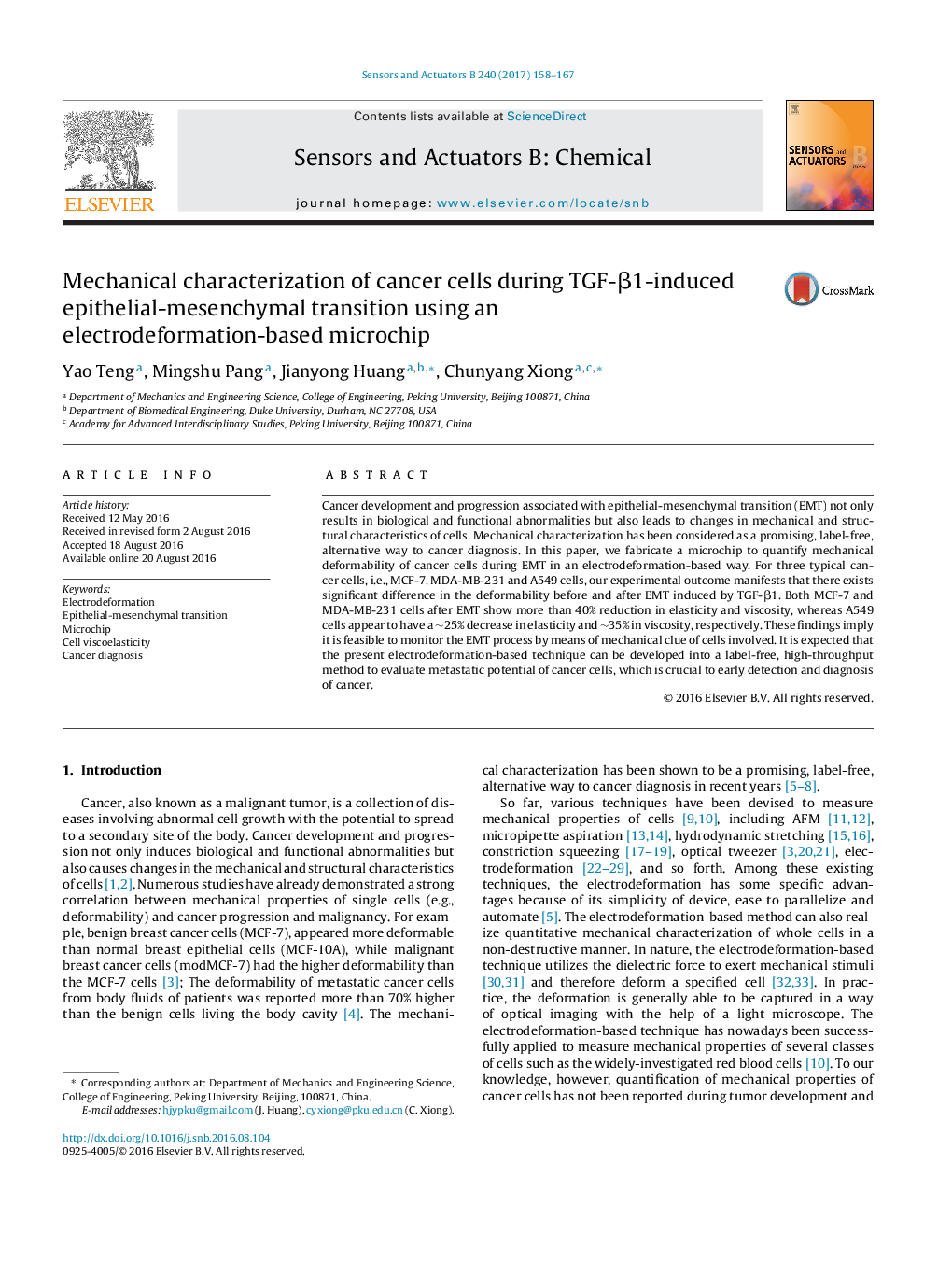| Article ID | Journal | Published Year | Pages | File Type |
|---|---|---|---|---|
| 5009563 | Sensors and Actuators B: Chemical | 2017 | 10 Pages |
â¢An electrodeformation-based microchip is fabricated for mechanical characterization of cells undergoing EMT.â¢The correlation is revealed between the TGF-β1-induced EMT of cells and their mechanical deformability.â¢This technique presents an alternative biophysical way to detect EMT induced by TGF-β1.â¢This method provides a novel insight for designing biochips to clinically diagnose cancer.
Cancer development and progression associated with epithelial-mesenchymal transition (EMT) not only results in biological and functional abnormalities but also leads to changes in mechanical and structural characteristics of cells. Mechanical characterization has been considered as a promising, label-free, alternative way to cancer diagnosis. In this paper, we fabricate a microchip to quantify mechanical deformability of cancer cells during EMT in an electrodeformation-based way. For three typical cancer cells, i.e., MCF-7, MDA-MB-231 and A549 cells, our experimental outcome manifests that there exists significant difference in the deformability before and after EMT induced by TGF-β1. Both MCF-7 and MDA-MB-231 cells after EMT show more than 40% reduction in elasticity and viscosity, whereas A549 cells appear to have a â¼25% decrease in elasticity and â¼35% in viscosity, respectively. These findings imply it is feasible to monitor the EMT process by means of mechanical clue of cells involved. It is expected that the present electrodeformation-based technique can be developed into a label-free, high-throughput method to evaluate metastatic potential of cancer cells, which is crucial to early detection and diagnosis of cancer.
